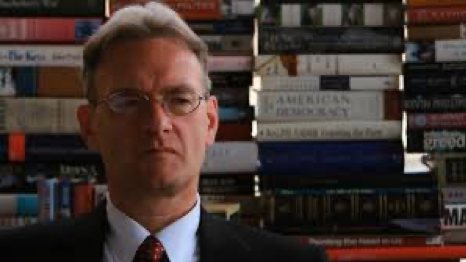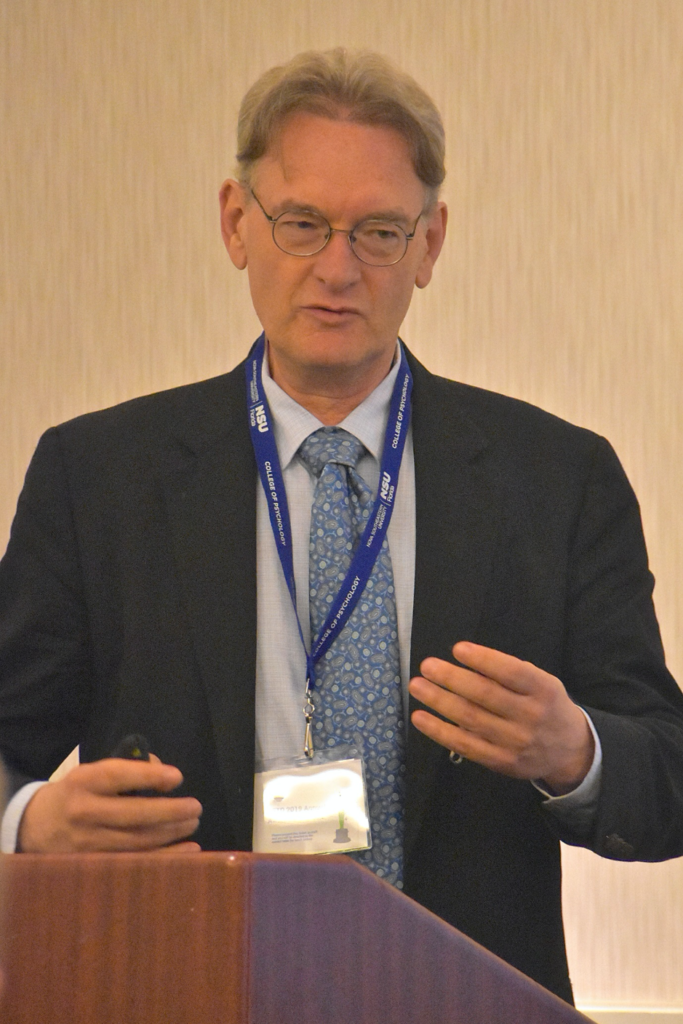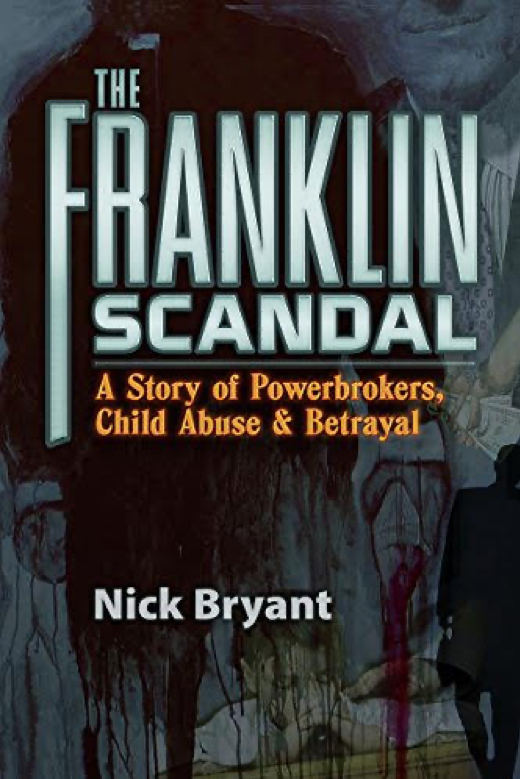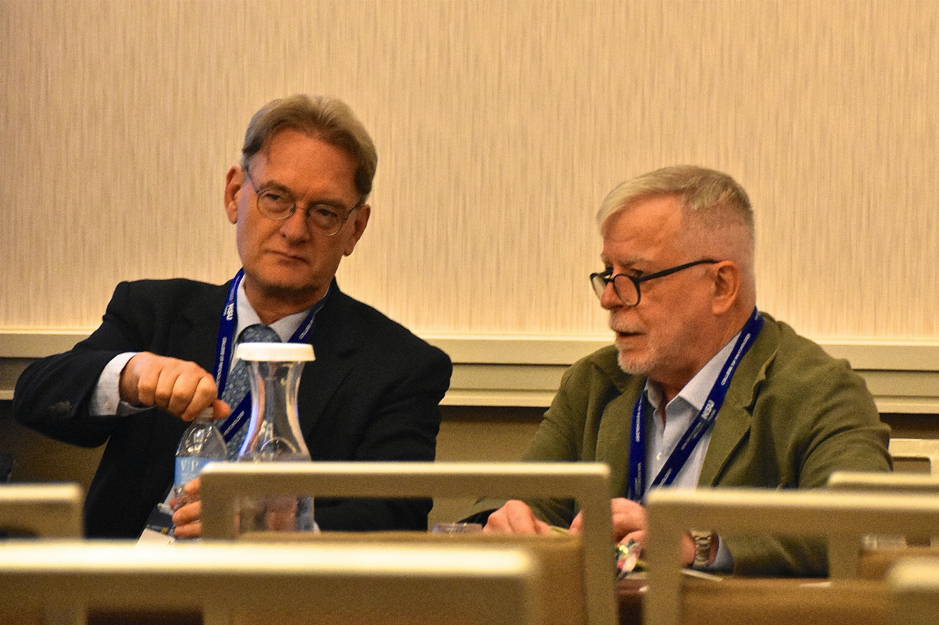Disclaimer: The views expressed in this interview are solely those of the interviewee.
Interview Conducted 7th August 2019 by Warwick Middleton, MD
ISSTD Past President, Dr Warwick Middleton, MD interviewed investigative journalist and author, Nick Bryant in August 2019. This is the first of a two-part series in which we explore the work of a remarkable investigative journalist who has uncovered evidence of significant crimes against children.
Warwick Middleton: Warmest welcome, Nick. It is particularly topical that we interview you, in view of the emerging exposé that surrounds Jeffrey Epstein and his connection with high level powerful political figures. You had a particularly important role in bringing to public attention, for the first time, aspects of the Epstein case. This throws back, of course, to your pioneering work in respect to the Franklin scandal. We will talk a lot more about the parallels between those two extreme cases of organized abuse and pandering of minors by powerful and well-connected political figures.
However, my first question to you is: When you look back on your own upbringing, can you see any antecedents of a career where you’ve had a unique contribution, by way of researching the organized sexual abuse of minors in the US?

Nick Bryant: I was never sexually abused. I had a step-father who was very violent. The first time I ran away, I was twelve. It was out of self-preservation and, luckily, I didn’t get far. Bad things can happen to twelve-year-olds on the streets. If someone like Craig Spence or Jeffrey Epstein had intersected with me, I’d have been quite vulnerable. So I understand these kids in a way – their vulnerability. There is something wrong at their home, so they might run away. In that respect I can identify with these kids, but thank God I didn’t get mixed up with very sordid people.
Warwick Middleton: Can you tell us how you first started writing about this area?
Nick Bryant: I worked at the University of Minnesota for five years. Under the auspices of Biomedical Ethics, I wrote academic papers and a book on children’s issues. Children’s issues have been very near and dear to me. The United States doesn’t put a lot of money into children’s issues the way other countries do.
When I was working at the University, I was told that there was a serial killer who was killing prostitutes in Minneapolis, and there was a woman who ran an organization that helped prostitutes get out of that life. She was very vocal about it. The police were denying that there was a serial killer killing prostitutes. I found a list of 55 women who had been strangled, stabbed or suffocated over the previous ten years and I wrote an article about it. I went to the Minneapolis Police Department and I went to the St Paul Police Department, who were adamant that there wasn’t a serial killer.
But when I put this list in front of them, they became a little more receptive to the idea that there was a serial killer. A task force was set up to find the serial killer. They never did (find the killer) but, the thing about it is – I had written all these papers and a book in academia about children’s issues and nothing had ever happened. I didn’t even make a dent in the problem. Then I write an article about a serial killer, it’s my first piece of investigative journalism – and all of a sudden a task force is formed. I thought to myself – I might be able to make a difference as a journalist, rather than as an academic. It was my segue into journalism.
Warwick Middleton: What have been the highlights of your career thus far as an investigative journalist?
Nick Bryant: I would say the article I wrote about the serial killer was good. The book that I wrote, “America’s Children: Triumph or Tragedy” was a highlight. “The Franklin Scandal” was definitely a highlight of my writing career, even though it wasn’t the best career move (laughs). But I felt like I had to write it…It was just too evil for me to ignore.

Warwick Middleton: Can you give us a feel for what it is actually like as an investigative journalist researching something like the Franklin scandal?
Nick Bryant: Publishers were just not interested in the story at all. When I would bring this story to publishers and editors, I could sense their cognitive dissonance. ‘He’s talking about horrific crimes, so either I have to do something about this or label him as crazy or a conspiracy theorist’. So, that’s the reputation that I gleaned in New York after pitching “The Franklin Scandal” to everyone. They would rather write me off as a conspiracy theorist or crazy than take Franklin seriously. I took it to just about every major editor in New York. After I pitched Franklin to them, they weren’t returning my emails. So, that was a tough way to go.
Warwick Middleton: Could you give us an outline of what you think are the key established facts about what is now called the “Franklin scandal”?
Nick Bryant: “The Franklin scandal” is about an interstate pedophile network that flew kids from coast to coast. What we are seeing with Jeffrey Epstein, we saw in the Franklin scandal, although I think the Franklin pandering network was much, much bigger than Jeffrey Epstein’s network. There were two primary pimps. There was a pimp in Nebraska, Larry King. He was getting children that had fallen through the cracks, from foster-care homes, from Boy’s Town Orphanage and from some other institutions. There was another pimp living in Washington, DC, who was involved in this, Craig Spence, who had his home wired for audio-visual blackmail. Anybody who took part in any of those parties at Craig Spence’s home was definitely blackmailed.
Social services ultimately found out about that network and they went to both state and federal law enforcement. These social service personnel were simply ignored by both federal and state law enforcement – just ignored. However, ultimately, there was an investigation because one of the accused pedophiles, Larry King, had embezzled $40 million from the Franklin Savings and Loan, which he was manager of. They formed a sub-committee to look at King’s embezzlement of money. And as soon as the committee formed, the social services personnel went and said, “Larry King is a thief but he’s also a pedophilic pimp.” And then they started to look into it and that’s when things started to happen…
Warwick Middleton: What does it say about the process that leading politicians within the state don’t have confidence in their own state police force to investigate a matter like that?
Nick Bryant: Well, it shows how badly state and federal law enforcement had been corrupted with Lawrence King. We saw that with Jeffrey Epstein too. It’s the same type of corruption. And, ultimately if those senators hadn’t been unwilling to back down I wouldn’t have written the book. And my career would probably have been a lot more lucrative than it is now! (laughs)
Anyway, those senators hired an investigator named Gary Caradori, who was an amazing investigator. He found additional victims and videotaped them. He had 21 hours of videotaped victim testimony, and that testimony was given to both state and federal law enforcement. They could no longer deny or ignore that Lawrence King ran a pedophile network. So, it had gone to a whole new level and that required a completely new and improved cover-up – a much bigger cover-up. At that point there were some very mysterious deaths, including the investigator, Gary Caradori. His plane disintegrated over Lee County, Illinois. I think he got some really critical evidence that was going to blow the thing wide open.
There were also two grand juries that were corrupted. One of them went for two and a half months and found that there was no child abuse and they indicted the victims of child abuse for crimes, for perjury. It was pretty amazing. Two of those kids would not back down – Alisha Owen and Paul Bonacci. Alisha was indicted on eight counts of perjury and was looking at 160 years (in prison), and Paul was indicted on three counts of perjury and was looking at 60 years, but they would not back down, which I find pretty amazing – that those two kids would just refuse to back down.
Warwick Middleton: You mentioned Gary Caradori. What are the key bits of evidence regarding what most likely happened to him?

Nick Bryant: He flew to Chicago under the auspices of taking his son to an American Baseball League game. This was in 1990.
In Chicago he met with Rusty Nelson, who was a child pornographer and also, I think, a blackmail photographer. I spent a lot of time with Rusty. He’s kind of an unsavory guy. But in an investigation like this, you have to spend a lot of time with unsavory people. It’s just the way it is.
Rusty said that he had given pictures to Gary Caradori of the pedophilic exploits of King and the other powerful people when they met in Chicago. I’ve have four points of corroboration, other than Nelson, that Gary Caradori did get pictures in Chicago. Caradori was flying back to Lincoln, Nebraska when his plane inexplicably broke up over Lee County, Illinois. He and his eight year old son were killed. And then the pictures were never discovered. In my book “The Franklin Scandal” I dig into the weeds about very strange things that went on in the Gary Caradori investigation – all through the FBI and the National Transportation Safety Board. I firmly believe that Gary Caradori’s death was a homicide. I don’t have too many doubts about it.
Warwick Middleton: Nick, how many credible witnesses did you interview in the course of putting together “The Franklin Scandal”? And how long did it take you to research that scandal before you actually committed it to publication?
Nick Bryant: The research, the writing and the investigation took about seven years. The hardest thing was to find the victims. I had a list, you see. I got all of Gary Caradori’s documents, and he had a list of something like 60 victims. So, my job was to find the victims – and that was the difficult part of this – finding victims that would talk. Because some of them just fell through the cracks. Some of them were drug addicts. A lot of them had spent time in prison. It was difficult to find a lot of the victims. But I finally ended up getting eight to talk to me on the record.
Warwick Middleton: Nick, can you actually give us a feel of what it was like to be an investigative journalist delving into a scandal that led to very senior people and what sort of danger that placed you in as a journalist?
Nick Bryant: I only had one overt death threat and that was the first time I set foot in Nebraska…When I realized it was real, that it was a reality, that all these kids had been destroyed, I just made a decision that I wasn’t going to stop. The people who were hassling me were going to have to kill me if they wanted me to stop. That was it.
Warwick Middleton: Nick, can you tell us a bit about the two particular key figures in this – Lawrence King and Craig Spence and what their particular political connections were or are? We know that Craig Spence is dead, but Lawrence King is still around.
Nick Bryant: Lawrence King was considered the fastest-rising African-American star in the Republican Party. He rubbed elbows with just about everybody in the upper echelon of the Republican Party. Craig Spence was also a power-broker in the Republican Party. He was a lobbyist. He could call anyone at any time. He had connections. As I said in “The Franklin Scandal”, he could pick up a phone and call anybody.
Warwick Middleton: How much do you think they compromised powerful figures by way of secretly recording the sexual abuse of children?
Nick Bryant: I think that Spence compromised anybody who did anything illegal in Spence’s home in Washington. There were lots of opportunities to do things that were illegal in Spence’s home. Anybody who did anything illegal in that home was compromised. And Americans don’t understand this counter-political process. Americans think it is special interest money that is co-opting the political system. Which is true, but political blackmail is also co-opting the political system. Recently, I talked to the editor of a major magazine in New York City about Epstein. The Epstein story had broken. I knew more about Epstein so I thought someone would jump on it. She could not believe that sexual political blackmail existed. We’re talking about the editor of a major magazine in New York City and she does not believe that sexual political blackmail exists! That’s how obtuse people are about this reality!

The thing about it is that there are people who come up in my interviews that I couldn’t mention in my book – just because they are so powerful. It would be like one victim who has a very damaged, shattered life testifying against some august powerbroker. That would be like a first round of knockout as far as credibility goes.
The system is perfect because the victims become so damaged that their credibility is shredded. Generally, from what I have seen, they are from low socio-economic backgrounds, with mental health issues. Ultimately, they are molested repeatedly and then they are given drugs. Drugs are one of the carrots that are used. So, by the time a kid has been expunged by a network, like the Franklin network, they’re in tatters and a lot of them are drug-addicts. And they go on to commit crimes to support their drug addiction, which ultimately lands them in prison, which further compromises their ability to be a credible witness. So, it’s like the perfect system. You abuse these victims so badly that they go on to compromise their own credibility.
Warwick Middleton: Nick, in your book you actually describe driving with Rusty Nelson, who you mentioned earlier, and being pulled over by state troopers on the highway, and having your car partly disassembled on the roadside by troopers who were looking for something and obviously believed that you were carrying it. Can you describe what that was like?
Nick Bryant: That was the most frightened I’ve been, throughout my Franklin investigation. I was with Rusty Nelson. He was a convicted sex offender, child pornographer, and he took me on a wild goose chase with those pictures. I was driving him home. It wasn’t like “warm and fuzzy” between us. He had taken me on a wild goose chase. I was kind of upset about it.
We were going to his girlfriend’s house in the middle of nowhere. And then a police officer pulled me over. I was going 71 in a 65 zone. I gave my license and he said, “Get out of the car!” And then he deposited me in the squad car and then another trooper showed up with a dog, and they took everything out of the car. I was sitting in the back of this police car watching this whole thing unfold, knowing that I was with Rusty Nelson, convicted sex-offender. If they planted pictures on me, or planted pictures there, that would have been problematic. Before I went on the wild goose chase with Rusty I made a video of myself and disseminated it to some people and I said exactly what I was going to be looking for, and that I was going to be with Rusty Nelson. So, if anything had happened to me, that video would have been indispensable in a court of law. I backed myself up that way. Pictures had gotten Gary Caradori killed, so I knew that going for pictures was very, very dangerous. This was absolutely “smoking gun” material.
Warwick Middleton: Nick, you published “The Franklin Scandal” in 2009 and have written steadily since, including a second edition of “The Franklin Scandal”. In all of that time, given the sensitive nature of what you have had to report and the multiple ways in which you used sources to verify the statements that you have made public, have you ever been sued by anyone, or has there ever been any credible evidence from anyone, printed and published, that you are a so-called “conspiracy theorist”?
Nick Bryant: Well, no one has ever sued me. “The Franklin Scandal” is layered with corroboration and vetted by an attorney. I told Trine Day, my publisher, “You guys have got to really vet this. What we are saying about a lot of people is pretty horrific. I am confident I am telling the truth here, but you’ve got to vet it.” So, it was vetted by an attorney and no one has ever accused me of libel over the years it has been out. No one has ever accused me of fabricating anything. It’s a very solid piece of investigative journalism.
But the Wikipedia page about the Franklin child abuse allegations has some very autocratic operators who will not let any truth about The Franklin Scandal enter that page. I’ve had wars with them and there’s other people who have tried to make changes to that page. So people look at the Wikipedia page and I am summarily dismissed as a lunatic.
Next Month:
We continue our interview with Nick, particularly focussing on the case of Jeffrey Epstein. This is a fascinating read, with insights from the journalist who investigated Epstein with dedication for many years, including obtaining and releasing both the Passenger Manifesto of Epstein’s private plane as well as his infamous ‘Black Book’.
In addition, Nick will be presenting at ISSTD’s 37th Annual Conference in San Francisco next month. Nick’s presentation forms part of a half-day conference workshop presented by Nick Bryant, Colin Ross and Warwick Middleton, and chaired by Heather Hall titled, “Politically Connected Organized Abuse: Understanding Perpetrator Dynamics”, 8:30 – 12:00, Sunday March 15, ISSTD Annual Conference, San Francisco.
Finally, for those interested in reading more about the Franklin Scandal Nick’s book is available at Amazon. Remember to use your Amazon Smiles to raise money for ISSTD.

